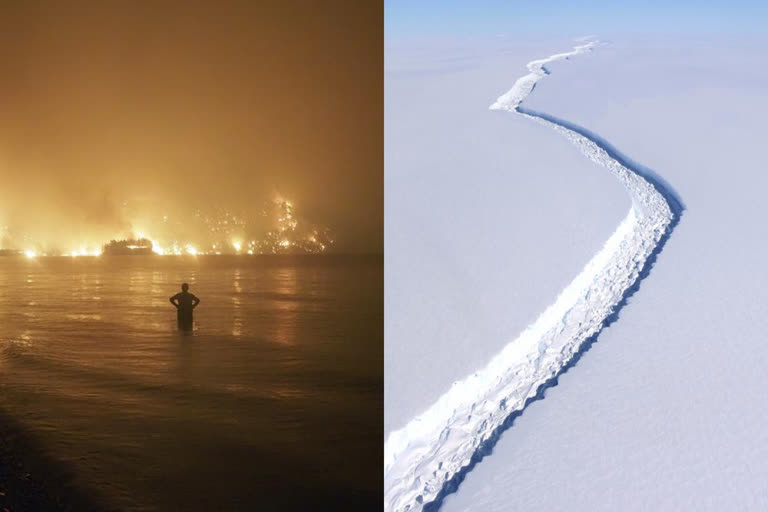Glasgow (Scotland): The U.N. climate summit, known as COP26 this year, brings officials from almost 200 countries to Glasgow to haggle over the best measures to combat global warming.
Here are some of the terms and key issues that will be discussed at the event, which started Sunday and is scheduled to run to Nov. 13:
COP
Short for Conference of the Parties to the U.N. Framework Convention on Climate Change.
First held in 1995, it also serves as the meeting of parties to the 1992 Kyoto Protocol that first committed countries to reducing greenhouse gas emissions and those that signed on to the 2015 Paris Agreement. Governments meeting in the French capital six years ago agreed on a target of keeping global warming below 2 degrees Celsius (3.6 degrees Fahrenheit), ideally no more than 1.5C (2.7F), by the end of this century compared with pre-industrial times.
The 26th conference was delayed by a year due to the coronavirus pandemic. More than 25,000 delegates are registered for the Glasgow event, which is being chaired by British official Alok Sharma.
HIGH-LEVEL SEGMENT
More than 100 world leaders will attend the start of the summit Monday and Tuesday, known as the high-level segment, including U.S. President Joe Biden and British Prime Minister Boris Johnson.
Germany’s Angela Merkel, who presided over the first COP, will make one of her last international trips as chancellor, while Indian Prime Minister Narendra Modi is also expected to attend in person.
Queen Elizabeth II and Pope Francis have canceled their trips to Glasgow, while Chinese President Xi Jinping, Russian President Vladimir Putin and Brazilian President Jair Bolsonaro are not scheduled to go but may deliver speeches by video link.
NDCs
The Paris accord set a target for limiting global warming but left it up to each country to submit its own emissions reduction targets, known as Nationally Determined Contributions.
Part of the plan was for countries to regularly review and, if necessary, update their targets to ensure the Paris goal is met.
Governments were required to submit their new NDCs five years after Paris, but that deadline was quietly pushed back a year because of the coronavirus pandemic.
PARIS RULEBOOK
Countries had hoped to finalize the so-called Paris rulebook a few years after the accord was signed, but some elements of the agreement remain unfinished.
